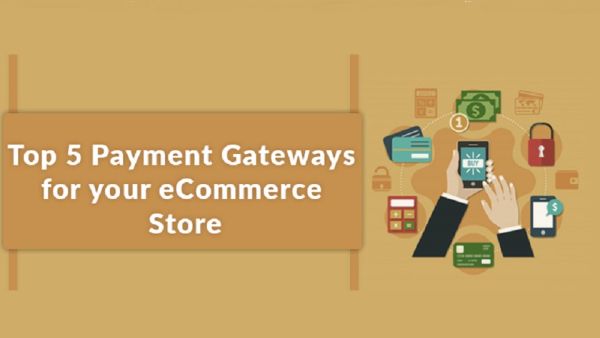Who Is The Best Payment Services Provider in the Middle East?

Consumers in MENA, and notably the GCC consumer, are among the most connected and digitally savvy in the world. The UAE and KSA have some of the highest levels of internet, smartphone and social media penetrations globally, with high levels of daily smartphone usage for almost all age groups.
Whether its initial discovery, research or making the final purchase, the internet plays a critical role in the consumer path to purchase with consumers in the region of all ages being heavily influenced by their online activities.
Partly due to this, the UAE has developed a robust ecommerce market in the last decade with an equally extensive landscape of online payment providers. Service providers in this space now offer more than a single feature and have developed their offerings to be more intuitive, integrated and high-tech.
These distinctive and innovative product offerings, integrated across the value chain and designed for an exceptional user experience are often powered by analytics. However, some providers are simply better than others when it comes to supporting merchants.
In this article, we explore some of the major contenders when it comes to online payment gateways and offer some tips on choosing the right payment provider for your business!
1. Amazon Payment Services
Amazon Payment Services (APS), who used to be known as Payfort, is the same company but with a completely new brand refresh. Now operating under an even more user-focused approach with backing from the global Amazon brand, they combine industry-leading technologies and insights with an integrated and intuitive merchant interface that allows its clients to easily access pretty much any payment-related service you can think of.
The new branding has also helped the company align its customer service efforts and provide merchants with a more intuitive and easy-to-use system that pretty much anyone can jump into, with added tech support from its merchant support.
The biggest benefit offered by Amazon Payment Services is its sophisticated monitoring and analytics features that allow merchants to look deeper into their payment performance and make important business decisions based on how customers are interacting with their ecommerce sites, to improve UX and conversions.
Pros
- The brand has long been focused on making it easier for small businesses to go digital and start making sales online and advocates for a better payment industry which supports local economies and helps everyone benefit.
- This payment gateway offers every payment feature you can think of, including installment options, short-term financing, subscription payments, payment links, and more
- Amazon Payment Services is focused on providing alternative payment options that support local consumer demand, with dozens of options available to customers making it easier for merchants to accept payments any way they want.
- The platforms data analytics, fraud prevention and tech support departments are incredibly robust and larger brands who want to truly maximise their full online potential can certainly do so with this platform.
Cons
- The sheer amount of features and offerings from this company can seem overwhelming at first for smaller brands, however, SMEs who want to scale rapidly in the next few years can benefit from working with a payments partner that offers adaptable and flexible payment features.
- As this company is at the top end of the market, maintenance and membership fees are a little higher than its competitors, however, if you want the very best service for your ecommerce business the cost might well be worth it.
2. Telr
You might have known Telr when it was called Innovate Innovate Payments. Today though, Telr is now one of the most well-known payment providers in the Middle East with awards under its belt for its services as a payment gateway.
Pros
- Telr offers several features and tools that enable businesses to accept and manage online payments via web, mobile and social media.
- Many of its features are designed to support start-ups and small businesses who are new to the world of ecommerce and have minimal development or coding capabilities.
- It is fast and reliable when it comes to data capture and processing and offers several payment options including repeat transactions for subscription services.
Cons
Larger global brands might find the services of Telr lacking when it comes to building an extensive payment networks with multiple channels and options, when compared with other more scalable payment providers better prepared to handle enterprise-level activity
3. CashU
CashU was established in 2002 and operates in countries such as the UAE, Egypt, Libya, Lebanon, Iraq, Qatar, Jordan, and others in the Levant region.
Pros
- CashU is one of the cheapest options on the market for small businesses who want to quickly get started in the world of online payments
- The company accepts both Mastercard and Visa cards as well as other popular card types.
- It is committed to anti-fraud and money laundering and has rolled out several updates to its services to strengthen these areas of its services in recent years
- The payment provider is accepted by major brands in several sectors and benefits from good market positioning. However,
Cons
- Its customer tech support features and merchant resources are not as sophisticated as other players on this list where extensive training and support is given to new merchant partners
- While it is growing, it is still not accepted in all parts of the world, meaning it can limit your expansion into certain markets. It’s important to check whether the countries you want to operate in are handled by Cashu first.
4. CCAvenue
Originating in India, CCAvennue now works with a broad range of businesses and individuals ranging from freelancers to large e-commerce companies.
Pros
- Businesses and individuals of all types and sizes can use CCAvenue. The platform is set up to handle both small-scale payment operations as well as larger systems.
- It offers several integrations with tech partners to accept more payment methods and improve the customer experience.
- Merchants can customize the payment software and interface to make it easier for their staff to use. On the customer-facing side, gateways can also be adapted to match branding requirements.
- CCAvenue offers hundreds of payment types, including Debit Cards, ATM Cards, Bank EMI systems, and prepaid payments.
Cons
- The largest brands and ecommerce platforms might struggle to get the level of power and support from CCAvanue as the platform focuses more towards small and medium-sized enterprises . If you need ongoing and additional support from tech teams to handle large volumes of varied payments, you might need to look to a gateway that is better optimised for this.
5. CyberSource
Operating in more than 190 countries, CyberSource is a part of the global firm VISA. It is their initiative to offer multiple payment solutions and bring new transaction products and features to the world. It offers payment management services that help businesses to process online payments, simplify payment security, and streamline fraud management.
Pros
- CyberSource comes with the backing of a globally recognised brand (visa) and offers some of the most sophisticated payment technologies to its merchants
- Its enterprise-level solutions are robust and offer businesses an easy route to scaling up, whether that’s locally or across borders.
- It offers several payment options and types, such as digital channels, payment links, mobile, web and even call centre payments.
- Durable security features such as its Tokenization technology help to ensure transactions are secure and protected.
Cons
- This platform might seem like it is built for larger enterprises with its extensive range of features and services, rather than a simple plug-and-play option for start-ups and small businesses
- The global reach and expertise comes at a slightly higher price point than most competitors on the market.
6. Stripe
Stripe is now one of the most popular payment processing solutions available today. Not always available in the UAE, it now serves many businesses in the country and region, helping them to streamline payments and improve the customer journey.
Pros
- Stripe is another player that offers brands the ease of scaling up, through services that are built for large volumes of transactions across borders.
- It now accepts over 135 different currencies and dozens of local payment options.
- The company has been launching new features for a few years now to offer payment products and options that meet the changing demands of its merchant clients, within the context of the global shift towards ecommerce.
Cons
- While the platform is robust with plenty of options for big businesses, you may need some in-house technical knowledge to make the most out of the services as some of the more advanced capabilities are harder to integrate.
- Stripe was originally built for developers and has been regarded as one of the more difficult platforms to use in terms of its merchant interface. However, it does ensure reliable and easy processes on the customer side.
Final Thoughts
The increasing digital sophistication of SMEs in the Middle East and the push to be more digitally focused from the recent pandemic has meant that businesses have rapidly adopted new technologies and processes to serve customers online.
The best payment services will provide both a way to adapt to the needs of the market as well as ongoing support and solutions that are easy to integrate. While many can be used as “plug and play” options that brands can manage themselves, there’s no denying that a good amount of tech and customer support can go a long way when things change in the payments industry so rapidly.
The challenge for merchants is to find payment partners that are affordable as well as offer industry-leading services with a good amount of scalability so that businesses can future-proof themselves against inevitable change.
Due to the increasing technological advancement of payment products and the growing opportunities for cross-selling, SMEs must be comfortable with their payment gateways and be able to use them to capitalise on the current opportunities that exist, rather than simply “keep up” with the large shift towards online shopping.
Background Information
Search Interactive
We are a group of unique individuals, who believe in being the best at what we do. With more than 10 years of experience in SEO and Analytics, we have built a brand that revolves around the idea of empowering our customers. The inspiring community that we have built – one that motivates us to think beyond boundaries – has helped provide our customers with services that remain unparalleled.






